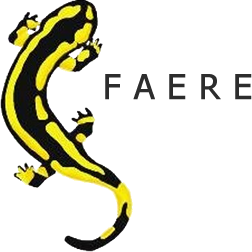Evaluating the relationships between French food quality labels and biodiversity
You will be hosted by: the joint research unit CESAER (INRAE, Institut Agro and University of Bourgogne Franche-Comté), the Center for Economics and Sociology applied to Rural Areas, in Dijon. You will contribute to the BiodivLabel study, commissioned by French ministries and the Environmental Agency. In the context of the upcoming regulatory environmental labelling, the objective of the study is to evaluate whether food quality labels such as organic farming, geographical indications or Label rouge have an impact on biodiversity, and if so, how this impact should be reflected in the future environmental labelling regulation. You will be supervised by Valentin Bellassen (INRAE, CESAER), Clélia Sirami (INRAE, Dynafor) and Cécile Bessou (CIRAD).
More specifically, you will be in charge of a quantitative assessment of the relationships between existing food quality labels and biodiversity. Your work will be divided into the following tasks:
1. Matching between a farm accountancy database (FADN), the agricultural census (RA), and the INAO database on food quality signs
2. Applying the BVI biodiversity models (Lindner et al., Sustainability, 2019)
3. Extracting the input variables (or proxies) of this model from the above-mentioned databases: at least crop rotation (FADN, RA, Land Parcel Information System) and inputs (FADN)
4. Applying a matching model and/or comparison of the averages of label farms vs. conventional farms
5. Matching additional databases to obtain more input variables (e.g. carbon or biodiversity reservoirs (RPG, BD hedges), landscape-dependence of biodiversity impact, livestock, its production and feed (FADN))
6. Applying more complex biodiversity models (e.g. RECIPE/Chaudary, cf. Crenna et al. (JCP, 2019))
7. Implementing meaningful sensitivity analysis on model parameters (e.g. by how much should “local biodiversity” be weighed against “global biodiversity” to change the merit order of quality vs conventional products?)
8. Discussion on the validity of biodiversity models based on available data, at least for local biodiversity (plot, farm, landscape scale)
Tasks 1-4 represent the minimum for a politically relevant answer to the question of the post-doc and will have to be implemented. They should not present any technical difficulty. Tasks 5-8 are examples of possible follow-ups to increase the robustness of the results. Over the first months of the contract, the post-doc will have the opportunity to propose other complementary research questions. Ultimately, the post-doc, together with his supervisors, will explore which are the most promising complementary research questions, and choose which ones to pursue in priority.
Nature of the job : Post-doc
Contact person : Bellassen, Valentin,
Application deadline : 20/11/2023
